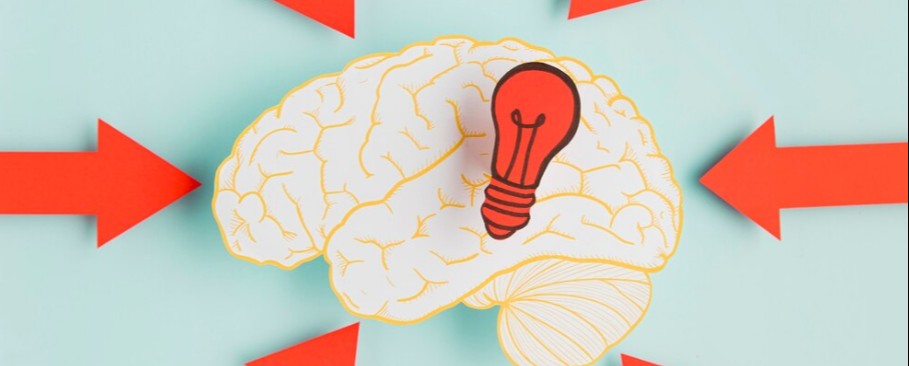
World Teen Mental Wellness Day

World Teen Mental Wellness Day
Every year on March 2nd, the world celebrates World Teen Mental Wellness Day. This day aims to raise critical awareness about the mental health struggles teenagers face, normalize conversations, and break down harmful stigmas surrounding mental illness.
The significance of World Teen Mental Wellness Day lies in its acknowledgement of the unique struggles adolescents encounter during this critical stage of development. Adolescence is a time marked by rapid physical, emotional, and social changes, which can sometimes lead to stress, anxiety, depression, and other mental health concerns. Factors such as academic pressure, peer relationships, family dynamics, and societal expectations can all contribute to the mental well-being of teenagers.
Why is this day important?
- One in seven teens aged 10-19 experience mental health challenges, like depression or anxiety.
- Mental health issues in teens often go undiagnosed and untreated, potentially leading to further struggles in adulthood.
- Stigma can prevent teens from seeking help, burdening them with silence and loneliness.
What does World Teen Mental Wellness Day aim to achieve?
On this day, organizations, schools, communities, and individuals come together to address the stigma surrounding teen mental health and emphasize the importance of early intervention and support. Various events and activities are organized, including workshops, seminars, panel discussions, art exhibitions, and social media campaigns to promote mental wellness and resilience among adolescents.
They aim to:
- Educate communities about teen mental health issues and their warning signs.
- Encourage open and honest conversations between teens, parents, educators, and healthcare professionals.
- Destigmatise seeking help for mental health challenges, ensuring teens feel supported.
- Promote resources and support systems available for teens struggling with mental health.
Serves as a Reminder:
Additionally, World Teen Mental Wellness Day serves as a reminder for parents, educators, healthcare professionals, and policymakers to prioritize the mental health needs of teenagers and ensure they have access to quality mental health services and support networks. It encourages open communication channels where teens feel comfortable discussing their feelings and seeking help when needed.
Furthermore, the day underscores the role of self-care practices, mindfulness techniques, and healthy coping strategies in promoting mental well-being among teenagers. Encouraging teens to engage in activities they enjoy, maintain a balanced lifestyle, and cultivate supportive relationships can significantly contribute to their overall mental wellness.
Improving Teen Mental Health
Improving and supporting teen mental health requires a multifaceted approach involving various stakeholders, including parents, educators, healthcare professionals, policymakers, and the teenagers themselves. Here are some effective strategies:
1. Promote open communication: Create an environment where teens feel comfortable discussing their feelings and concerns without fear of judgment. Encourage regular conversations about mental health and actively listen to their experiences.
2. Provide education: Educate teens about mental health, common challenges, and coping strategies. Offer resources such as books, websites, and educational materials to increase their understanding and awareness.
3. Encourage healthy habits: Promote regular exercise, healthy eating, and sufficient sleep, as these play crucial roles in maintaining mental well-being. Encourage teens to engage in activities they enjoy and find relaxing.
4. Teach stress management: Teach teens stress management techniques such as deep breathing, mindfulness, and meditation. Encourage them to take breaks when feeling overwhelmed and to prioritize self-care.
5. Foster supportive relationships: Help teens cultivate strong, supportive relationships with family members, friends, and trusted adults. Positive social connections can provide emotional support and reduce feelings of isolation.
6. Address bullying and cyberbullying: Take proactive measures to prevent bullying and cyberbullying, including implementing anti-bullying policies, fostering a culture of respect, and teaching empathy and kindness.
7. Provide access to mental health resources: Ensure that teens have access to mental health resources, including counselling services, support groups, hotlines, and online resources. Remove barriers to accessing care, such as stigma and cost.
8. Promote resilience: Teach teens resilience skills to help them bounce back from setbacks and challenges. Encourage a growth mindset, positive thinking, and problem-solving skills.
9. Monitor and intervene: Keep an eye out for signs of mental health problems, such as changes in behaviour, mood swings, and withdrawal. Intervene early and connect teens with appropriate support services if needed.
10. Create a supportive school environment: Schools can play a crucial role in supporting teen mental health by implementing mental health education programs, providing access to counsellors, and promoting a positive school climate.
11. Involve parents and caregivers: Engage parents and caregivers in supporting teen mental health by providing resources, education, and opportunities for involvement. Offer parenting workshops and support groups.
12. Advocate for policy change: Advocate for policies that prioritize teen mental health, including increased funding for mental health services, improved access to care, and comprehensive mental health education in schools.
Ultimately, World Teen Mental Wellness Day strives to empower teenagers to take charge of their mental health, seek help when necessary, and advocate for greater awareness and understanding of the issues they face. By fostering a culture of empathy, support, and acceptance, we can create a world where every teenager feels valued, heard, and equipped to navigate the complexities of adolescence with resilience and strength.
Articles
Build your awareness and get inspired with our researched articles on how you can strengthen your well-being
Popular Topics
An OTP has been sent to the email address
provided.
Please check your Inbox and Spam folders.

What Would You Like to Speak with a Specialist About?
Mental Fitness Journey starts Now!
Chearful Connects you with Top-tier Qualified Wellness specialists for the Price of a cup of Coffee!

Next Steps
- A Client Team member will reach out to you to schedule a session with the most suitable specialist.
- You will receive an email with a 10% Discount Code* for your 1st session.
- We invite you to Explore the Platform & Sign Up today! *Upto a maximum of $10 discount on a session purchased




 2026 Read
2026 Read















































